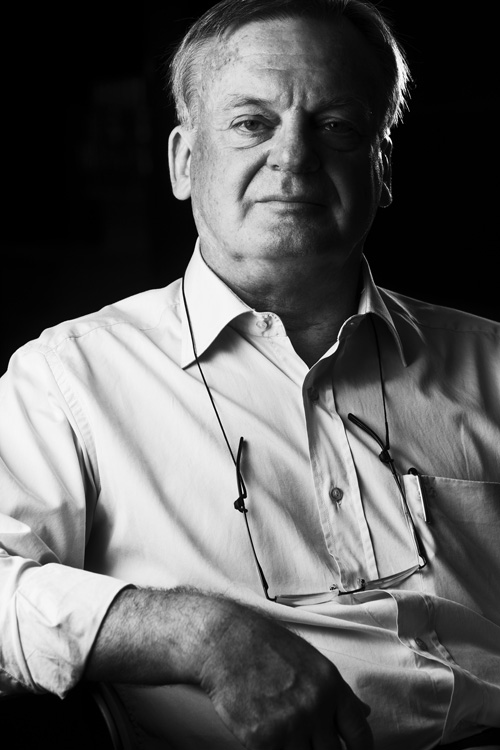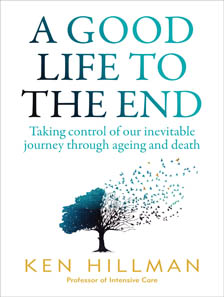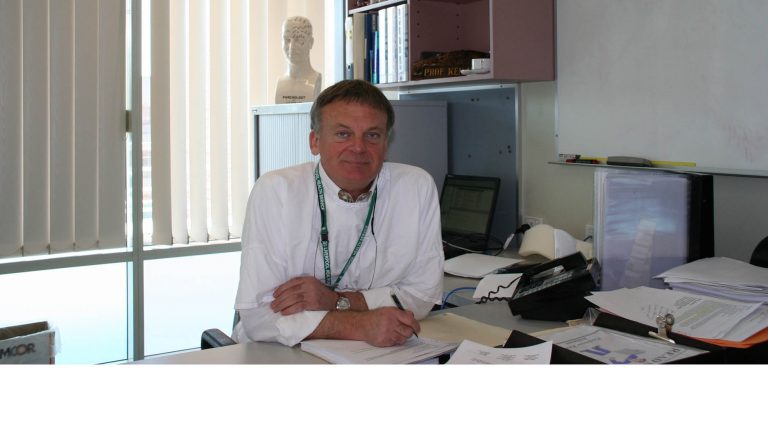PIONEERING PROFESSOR EXPLODES SOME MYTHS ABOUT END-OF-LIFE CARE
JOHN McNAMEE REPORTS
Many of the frail elderly people admitted to hospital intensive care units after a major episode such as stroke or cardiac arrest are being over-serviced by some branches of specialised medicine, a leading professor claims.
Professor Ken Hillman says false hope is all too often given to both the chronically and terminally ill elderly people and their families even though the patient has virtually reached their end of life.
He claims some treatments such as heart or brain surgery recommended by various specialists for some patients who have multiple “morbidities” or potentially fatal symptoms, could be even more dangerous.
Professor Hillman is a practising intensive care specialist at the University of NSW and Foundation Director of The Simpson Centre for Health Services Research.
He has just published what will most likely become a controversial new book, titled A Good Life to the End in which he urges hospital and medical specialists to consider the wishes of the elderly frail patients who are facing the last days of their lives on life-support machines.
“We as doctors are trained to diagnose and to cure but when an elderly frail patient is admitted to an intensive care unit with multiple complications, we know in our hearts that there is really nothing that will make this person’s quality of life any better, whatever our treatment,” Prof Hillman told Go55s.
“Many times in the ICUs doctors will say to me ‘we really have to do something for this poor person’ but I just say to them, would you want to live the rest of your life without any brain function, on a respirator, and with tubes all over you?
“Rarely a day goes by when another colleague in intensive care will say something like: ‘Please don’t ever let this happen to me.’
“I have been appalled over the years that ICUs had become a place where the frail elderly, soon-to-die and dying, are given unnecessary operations and life-prolonging treatments without their wishes being taken into account,” he says.
“We’re actually doing dying all wrong. My book isn’t just for patients and their families but for doctors as well,” he says.
“Apart from the fact that we want to be able to cure people, but knowing that someone just admitted has been a lifelong smoker and has limited lung and heart functions, there is the pressure of the families in the waiting rooms.

“When we confront them with the news of how seriously ill their relative is and further treatment may not help but make them worse, they say ‘well Mum’s always been a fighter, isn’t there anything you can do?
“Facing this sort of scenario, many doctors will outline some procedures they can carry out just so the family feels better, but it’s the wrong approach.
“Basically the rights of the elderly patient should be considered, it should be pointed out to families how their loved ones should be spared any further unnecessary suffering,” Prof Hill maintains.
He also says some of the millions of dollars spent on research into cures for such killer diseases as dementia and cancer should be diverted into studies helping to identify the condition of the frail elderly reaching their end-of-life.
Governments should also establish systems so that these people, once identified, are informed in an honest and compassionate way about their true state of health.
There should be information passed on to them outlining their choices and determining whether the services related to their choices are available.
He points out that it costs up to $4000 a day to keep a patient in the ICU and this weighs heavily on hospital resources and finances.
In his book, which he admits will cause some controversy and ill-feeling among many sections of the medical fraternity, he writes: “Authorities should also establish services for the elderly frail and terminally ill people that are consistent with their wishes.
“Initially this will involve extra expenditure but there is a strong possibility that once these services are developed and available, the need for expensive acute hospital services would decrease.
“However, it would be a mistake to close the acute hospital services without first establishing alternative support, consistent with peoples’ wishes.
“Public health campaigns (similar to successful preventative medicine campaigns such as AIDS, smoking and wearing seat belts) could be encouraged to create practical support around ageing and dying in a more honest and transparent way.
“And we should ensure that the law and medical practice are consistent with respecting and enacting peoples’ wishes.”
Prof Hill points out that the phrase “hanging on to hope” is often raised during discussions with families followed by “if you haven’t got hope then you have nothing left.’
“That’s fine,” he says, “if there IS real hope, but false hope can be destructive….people are encouraged to ‘fight’ terminal cancer, for example, the inference being that if they fail, they are losers.
“While it’s good to be positive and make the most of your life, denying the truth is not doing anyone any favours.”
In his book, Prof Hillman says he focuses on intelligent pessimism rather than false optimism.
He writes: “I still experience the excitement of saving a life that otherwise would have certainly ended…but I also appreciate the satisfaction associated with orchestrating a good dying process-pain-free, with the patient’s dignity intact and relatives who accept the dying process and are free to grieve in their own way.”
He argues that there have been great advances made in the improvement of so-called chronic diseases in the elderly.
“There is no doubt that we are living longer. We have made inroads into the management of strokes, heart attacks and diabetes.
“But we are left with elderly people with an increasing list of age-related conditions on which modern medicine with all its miracles is making little impact.
“We are now moving into as different area which is not obsessed with mindlessly prolonging life but which is about identifying the limits of modern medicine, being honest with people and devoting resources to supporting people in more imaginative and innovative ways as they age and begin dying.”
Prof Hillman’s no-holds-barred book must be a medical ‘first’ in that he explodes many of the myths around end-of-life care, it will certainly spark plenty of debate, challenge the status quo and no doubt change many lives.
There are so many gut-wrenching personal stories in the book from Prof Hillman’s long career in intensive medicine, so it’s not for the hypochondriacal or faint-hearted.

But as 70-year-old Prof Hillman says, we all have to face it in the end..he says his way of warding off the ageing process is to swim some 600m in the pool each day and to spend an exhausting afternoon looking after the grandchildren!
A Good Life to the End, Taking control of our inevitable journey through ageing and death, by Professor Ken Hillman. Published by Allen & Unwin. Available from July 2017. RRP $29.99.
Photo 1 – Ken Hillman in his University of NSW office where he is Professor of Intensive Care





